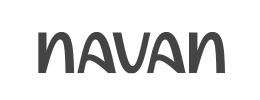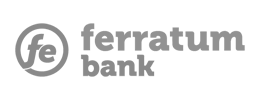How to boost matching success without trading off accuracy
Reconciliation professionals evaluating reconciliation software have high expectations about the benefits and capabilities of their solution. Their top priority is to ensure that the software demonstrates outstanding efficiency measured by matching success rates. Claims that 99.9% success rates must be well substantiated with technology that exclude logical inconsistencies and controversial logic.
100% matching success – what makes it feasible?
Indeed, while a 100% match rate can be achieved, it is imperative to approach this metric with caution and discernment, mindful of the potential for unethical advertising to skew perceptions. Expecting to match the unmatchable serves no one. Instead, realistic objectives coupled with robust exception investigation and reporting can provide a more comprehensive narrative of reconciliation performance.
ReconArt performs matching on a rolling basis, which means that a transaction remains in the list of outstanding items until it finds it rightful match – either by importing new data, or by introducing an appropriate rule. Actually, our experience shows that the system produces quite impressive results (in the range of 80-90%) even at the first round of matching, given an optimal set of match rules is in place.
Furthermore, ReconArt does not shy away from putting the platform capabilities to the test. And while trials are not applicable for a fully configurable solution, implementing a Proof of Concept (POC) can pragmatically demonstrate ReconArt’s capabilities within an actual business context. Our prospective clients understand the full spectrum of our solution’s effectiveness and that always helps them make the right choice.
Quality of the data as a key factor for matching success
The expression “garbage in, garbage out” remains especially true when we speak financial reconciliations. Substandard data can significantly undermine any reconciliation processes, leading to erroneous results and misguided business decisions. It is crucial to perform diligent audits of your upstream sources to safeguard the integrity of your data.
Hopes are high that AI is here to become a panacea for all kinds of operational misfortunes. AI technology as we know it today still needs carefully constructed prompts and lots of high quality data to train on and perfect its algorithms. Unfortunately, AI cannot anticipate human intention or work on ambiguous aims.
Ideally, each transaction would possess a unique identifier, eliminating any doubt and ensuring a solid foundation for any reconciliation process. However, few reconciliation teams indulge that luxury. ReconArt performs automated matching of large data sets by a combination of rules, enhancing the precision of match results.
Organizations that prioritize continuous improvement can refine their data systems and protocols, yielding reliable and actionable insights. ReconArt works with your business’s commitment to quality and operational excellence. We provide agility for process change and reengineering to adapt to any situation and proactively seek room for improvement.
Can AI solve the unsolvable?
In financial reconciliations, fluid logic and probability matching fall short of the accuracy standards for sound financial reporting. The complacent overreliance on questionable algorithmic predictions can lead to contradictions and chaos. Such practices erode the trust in numbers that financial data requires.
Moreover, AI-generated matches need validation by a human. A working ML model must process lots of labeled data to recognize the relevant patterns. Learning downtime makes the implementation of new processes a huge upfront investment with slim chances of quick success. A disadvantage that undermines potential time savings.
A sensible approach, however, can integrate the evolving AI capabilities into the existing financial reconciliation process without damaging its credibility with distorted perspectives. Our approach balances cutting-edge AI/ML technology with the realities of its current capabilities, ensuring that clients harbor realistic expectations while striving for optimal efficiency and accuracy in their reconciliation processes.
ReconArt approaches data matching success with reason
ReconArt’s data matching capabilities are grounded in logical precision. The matching engine allows translating even the most intricate matching logic into machine executable rules. Our reconciliation tool is engineered to handle complex scenarios, cutting through the noise to produce consistent and reliable results. Controversial and misleading outcomes are out of question.
In our experience with customer data, upstream sources make it challenging to compare data that in fact aligns. We recognize that 100% mathematical certainty is a rare thing and human knowledge of the context plays and important role in spotting subtle connections in data. Therefore, we assist our users with features like the Suggest match or the Rule wizard, which brings forward plausible matches for consideration. Thus, the ReconArt user cover the grey zones without compromises with precision.
ReconArt is not a black box. Every action taken within the system leaves a documentation footprint and can withstand the scrutiny of the most stringent compliance audits. The software captures a granular audit trail and rule performance statistics. Our users (and their auditors, for that matter) can verify the presented results and trace back the logic applied in the matching process. The ReconArt promise of matching success is to find the best defendable match, nothing more and nothing less.

 follow our blog
follow our blog






















 Quick response
Quick response

